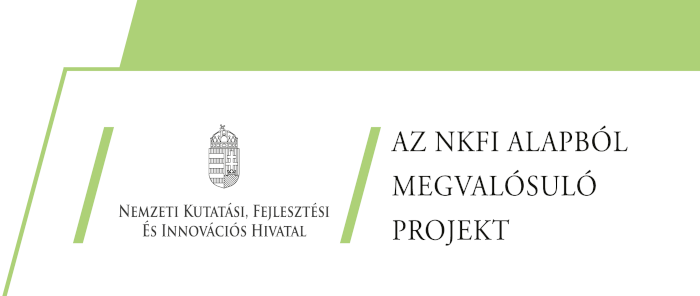Development of multiparameter testing systems for analysing the environmental impacts of microplastics
A research project, aimed at examining microplastics in water, has been recently launched in Hungary. Airborne microplastic particles – endangering human health – in indoor and workplace atmosphere along with their concentrations and microbiological impacts, will be identified as well as harmful substance concentrating effects of waterborne microplastics and the toxicological impacts of microplastics emitted into the environment during wastewater treatment processes will be assessed and identified in the context of the project, with the involvement of several universities, one independent testing laboratory and highly reputed experts. The project of a more than HUF 600 million budget, launched by the National Research, Development and Innovation Office (NRDIO), will be carried out with the involvement of students as well, and its results, expected to include new sampling and measuring techniques. methodology proposals and scientific publications, will be integrated in study materials and syllabuses as well.
Nearly half a billion tonnes of plastics are manufactured in the world each year, much of which is processed into disposable products. Because of their extensive use and short life cycle, and because of the inadequate functioning of the existing waste management systems, plastics are continuously polluting the environment. Their natural degradation is a lengthy process – primarily through physical fragmentation they fall apart into ever smaller pieces, of which those smaller than 5 mm are referred to as microplastics. A large number of international research projects have found microplastics not only in the environment but even inside the human body, practically everywhere.
During the years preceding the current project scientists of the Hungarian University of Agriculture and Life Sciences and Eurofins Analytical Services – a company performing independent laboratory services – conducted some ground breaking work in assessing and analysing microplastics in Hungary's natural waters. To have a better understanding of the sources microplastics in the environment and what happens to them during their degradation the members of this consortium set themselves a goal of assessing the risks of two new impact routes: the air and wastewater.
The extent to, and the way in, which the air is affected by microplastics one of the less intensively studied aspects of our subject. The project focuses on microplastics in indoor and workplace atmosphere and the impacts of microplastics released into the ambient air from waste incineration, perceived as the sources of the most severe health risks. Waste water treatment plants are also crucially important as sources of microplastics pollution: one of the key sources of natural waters' microplastic contamination is treated waste water, where environmental pollution can still be prevented; on the other hand, accumulation in sewage sludge is a major decision making point in terms of the utilisation of the sludge, for instance in agriculture.
In addition to measuring the quantities of microplastics present, the scientists assess some special risks associated with plastic particles such as adsorption and colonisation on their surface, in particular, the interaction between the increased density of chemicals (e.g. crop protection products, antibiotics) attached to particle surfaces and their microbiological coating. Microplastics being particles, the conventional toxicological methods applied in risk assessment in this field also need to be improved therefore the scientists develop innovative bacterial and vertebrate toxicological assessment models.
In the project financed by a grant of a total of HUF 624,632,580, entitled "Development of multiparameter testing systems for analysing the environmental impacts of microplastics" the consortium leader laboratory service provider and consultant, that is, Eurofins Analytical Services, has been operating for 30 years now in environmental protection, food safety and health protection. In addition to performing accredited tests and analyses the company is also engaged in priority R&D activities; it has participated in multiple successful domestic and international projects and was one of the first entities to start assessments of the microplastics pollution of Hungary's natural waters and later it patented a water sampling technique developed specifically for freshwater environment, in the context of a NRDIO project.
Of its partners the Hungarian University of Agriculture and Life Sciences (HUALS) has decades of experience in environmental security, toxicology and environmental microbiology, while the University of Pannonia is particularly experienced in studying atmospheric aerosol particles, in material sciences and in the development of wastewater purification and water treatment technologies, even by international standards. The Soós Ernő Research and Development Centre (SERDC) has, since 2014, been conducting landmark studies in water treatment and purification as well as the occurrence of medicine residues and microplastics in a variety of water bodies.
It is the vertical structure made up of these disciplines that enables the development of a marketable system of services that will make a major contribution to the assessment of the environmental risk posed by microplastics. The expected results may not only lead to the development of an analytical, assessment, testing and consultancy module but, through strengthening social responsibility, they will also contribute to the creation of a healthier and sustainable environment.
